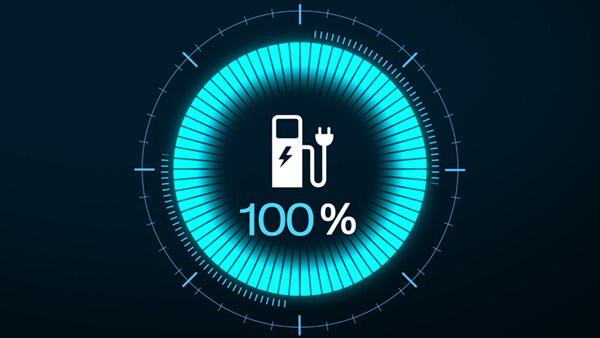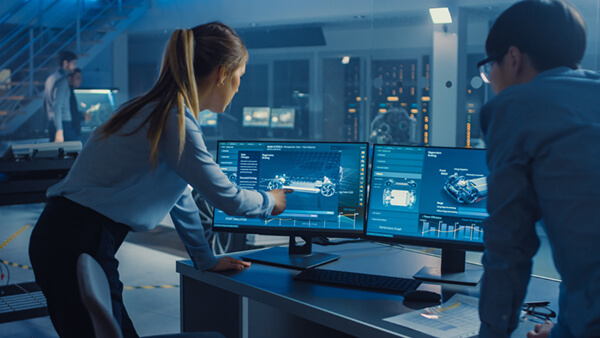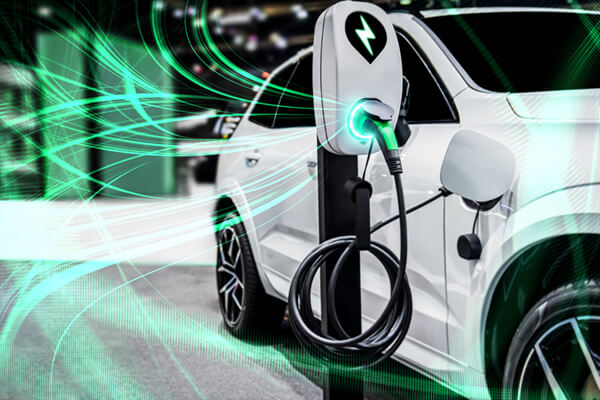Although electric vehicles are rapidly increasing in popularity and their ranges are making them more viable for everyday drivers, the time it takes to charge their batteries is a significant drawback. Now, two companies are working on EV batteries that could charge in under five minutes, and manufacturers are already producing them. Here’s what you should know about the future of 5-minute-charging EV batteries.

People once thought that charging a lithium-ion battery in just five minutes was impossible, but new technology is showing it can be done. Experts believe that these new super fast chargers and batteries could be available to consumers by 2024:
StoreDot
A battery manufacturer based in Israel called StoreDot appears to be leading the race to creating a battery that can charge in five minutes. The company says it’s on track to release a battery capable of charging to the 160-kilometer range in five minutes. It also believes it could reduce it to a two-minute charge time by 2032.
The process lithium-ion batteries use is the main holdup with quickly charging our current batteries. In short, they push lithium ions into graphite electrodes to store a charge. When these are rapidly charged, though, the ions get congested and turn into metal, which short circuits the battery.
StoreDot’s batteries replace the internal graphite with semiconductor nanoparticles. The ions can pass through these nanoparticles without congestion, allowing rapid charging.
This breakthrough by StoreDot is massive news as it could reduce range anxiety for potential EV buyers. The products will likely be ready for consumer purchase by 2024.
Nyobolt

Although StoreDot is leading the way in quick-charging technology, they aren’t the only innovators in town. Nyobolt is a UK-based startup that recently raised $59 million in Series B funding, and its five-minute-to-charge batteries could be available to the public sometime this decade.
The technology Nyobolt is using differs from StoreDot’s because the startup is completely changing the battery’s makeup. It is using niobium and tungsten to develop battery anodes, which could allow its batteries to reach 90% capacity in less than five minutes. These batteries should also be more powerful and durable than lithium-ion versions.
One potential drawback is that tungsten is a rare metal that isn’t always readily available. However, H.C. Starck Tungsten Powders, which can access the largest tungsten reserves in the world outside of China, is a lead investor in the startup.
The Fast-Charging Cable

These fast-charging batteries are amazing, but there’s another advancement worth looking at, too. Purdue University recently made a significant breakthrough by inventing a cable that can charge existing EV batteries in under five minutes.
Current batteries aren’t capable of charging within five minutes because the system overheats. The faster an electric current runs through a cable, the hotter the cable and battery get.
Purdue University’s technology cools the cable using liquid and vapor techniques, allowing it to run at over 2,400 amps. Today’s most advanced EV chargers run at 520 amps, so this product would be a significant upgrade.
We’ll still need charging stations to handle that output, but developing a cable that can accommodate ultra-fast charging is an excellent first step. Creating cars that can take the charge will also have to follow because this technology is well beyond the capabilities of our current vehicles.
The Future of EV Charging
Charging an electric vehicle should get far more manageable in the future, especially if any of these products reach the mass production phase. Having the ability to charge an EV in under five minutes would open the market up to even more people by eliminating many of the drawbacks associated with range and charging.
Are you excited about the idea of a five-minute EV charger? Let us know in the comment section below, and don’t forget to share this exciting news with the electric vehicle drivers in your life.